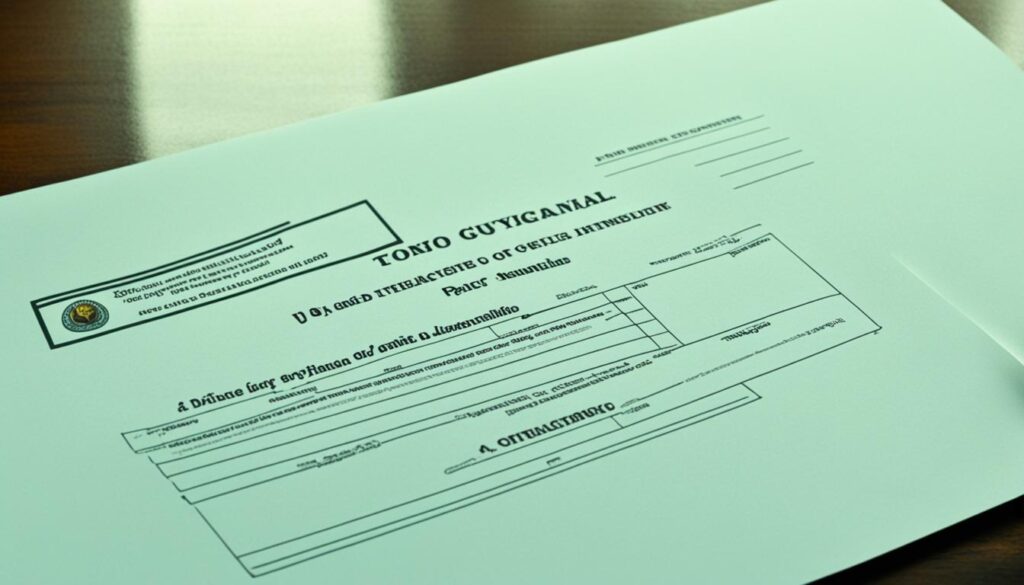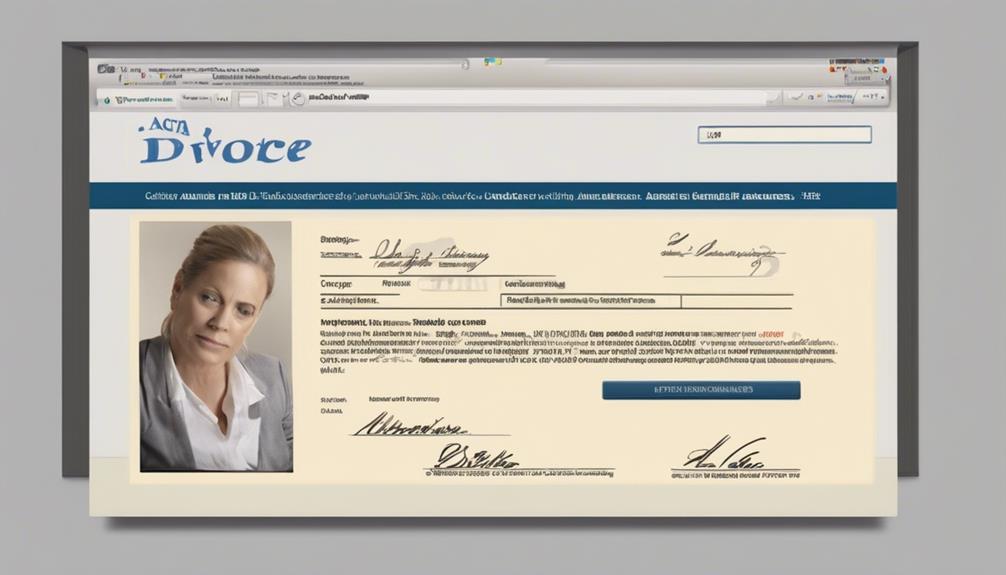Did you know that divorce in Guyana is based on fault grounds and does not allow for divorce by consent? That’s right! In Guyana, the court must be satisfied that one party is at fault for the breakdown of the marriage in order for a divorce to be granted. This unique approach to divorce makes it essential to understand the legal process and applicable laws surrounding divorce in Guyana.
Diving into the specifics, divorce in Guyana is primarily granted on three grounds: adultery, cruelty, and malicious desertion. The party seeking divorce, known as the petitioner, must file a petition in the High Court, clearly stating the grounds for divorce. The petition is then served on the respondent, either through personal service or substituted service. The court carefully examines the evidence presented during the hearing and assesses whether the grounds for divorce have been proven.
Once a decree nisi is granted, the petitioner can apply for it to be made absolute, officially bringing the marriage to an end. It is important to note that the process of divorce in Guyana can be defended or undefended, with defended divorces taking longer and incurring higher legal fees.
Key Takeaways:
- Divorce in Guyana is based on fault grounds and does not allow for divorce by consent.
- The three main grounds for divorce in Guyana are adultery, cruelty, and malicious desertion.
- The party seeking divorce, known as the petitioner, must file a petition in the High Court.
- Divorces in Guyana can be defended or undefended, with defended divorces typically taking longer and incurring higher legal fees.
- A decree nisi must be made absolute to officially end the marriage in Guyana.
Grounds for Divorce in Guyana
In Guyana, divorce can be obtained on three main grounds: adultery, cruelty, and malicious desertion. These grounds are firmly established in the divorce laws of the country, providing individuals with legal options to dissolve their marriages.
Adultery is considered a valid ground for divorce in Guyana. It refers to a spouse engaging in sexual relations with someone other than their spouse. The act of adultery can deeply affect the trust and emotional bond within a marriage, leading to irreparable damage and the desire for a divorce.
Cruelty is another recognized ground for divorce. It encompasses both physical and mental abuse that makes it intolerable for the petitioner to continue living with the respondent. The cruelty must be significant and ongoing, causing a detrimental impact on the petitioner’s well-being and the overall marital relationship.
Malicious desertion is a common ground for divorce in Guyana. It occurs when one party leaves the matrimonial home without a valid reason or the consent of the other party. Alternatively, it can also arise when one party has treated the other so badly that they are forced to leave the shared residence and end the marriage.
These grounds for divorce, namely adultery, cruelty, and malicious desertion, serve as legal foundations upon which individuals in Guyana can seek a dissolution of their marriages. They provide the basis for filing a divorce petition and pursuing a legal separation.

“Adultery, cruelty, and malicious desertion are the recognized grounds for divorce in Guyana. These grounds reflect the importance of trust, respect, and mutual support within a marriage. When these essential elements of a relationship are compromised, divorce can be sought as a means of finding a resolution and moving forward.”
Filing for Divorce in Guyana
In Guyana, if you are considering filing for divorce, you must follow the proper legal process. As the party seeking the divorce, known as the petitioner, you are required to file a divorce petition in the High Court against the other party, known as the respondent. The petition should clearly state the grounds on which you are seeking the divorce.
When preparing the divorce petition, it is crucial to provide accurate information and supporting evidence. This will help ensure that your case is presented effectively in court. The grounds for divorce in Guyana include adultery, cruelty, and malicious desertion.
Once you have prepared the divorce petition, you must serve it on the respondent. This can be done through personal service, where a marshal of the court delivers the petition to the respondent, or through substituted service. Substituted service can be accomplished by sending the petition via registered airmail post or publishing an advertisement in a newspaper.
If the respondent fails to enter an appearance or file an answer within the specified timeframe, the petition will be placed on the undefended list for a hearing. This means that the divorce will proceed without the respondent’s active participation in the legal proceedings.
It is important to follow the correct procedures and seek legal advice when filing for divorce in Guyana. A legal professional can guide you through the process and ensure that your rights and interests are protected.
Key Points:
- The party seeking divorce is known as the petitioner.
- A divorce petition must be filed in the High Court.
- The grounds for divorce must be clearly stated in the petition.
- The petitioner must provide accurate information and supporting evidence.
- The petition must be served on the respondent through personal service or substituted service.
- If the respondent fails to respond, the petition will proceed on the undefended list for a hearing.

Defended Divorce in Guyana
A defended divorce in Guyana occurs when the respondent enters an appearance and files an answer or answer and cross prayer. In such cases, both parties are required to give evidence and may be cross-examined by the other party’s lawyer. Additionally, any witnesses presented by either party may also undergo cross-examination.
The judge presiding over the case then determines which party has successfully proven their case. Based on this assessment, the judge can either grant a decree nisi, which signifies the court’s satisfaction with the grounds for divorce, or dismiss the petition altogether.
It is important to note that defended divorces often take longer to be scheduled for a hearing and typically result in higher legal fees compared to undefended divorces, where the respondent does not file an answer.
Defended Divorce Process Overview:
- Respondent enters an appearance and files an answer or answer and cross prayer.
- Both parties provide evidence and undergo potential cross-examination.
- Witnesses presented by each party may also be cross-examined.
- The judge determines which party has proven their case.
- The judge either grants a decree nisi or dismisses the petition.
To better understand the defended divorce process in Guyana, let’s take a look at the following table detailing the key differences between defended and undefended divorces:
| Aspect | Defended Divorce | Undefended Divorce |
|---|---|---|
| Respondent’s Action | Files an answer or answer and cross prayer | No response or answer filed |
| Party’s Testimony | Gives evidence and may be cross-examined | Goes into the witness box and testifies |
| Hearing Length | Longer | Shorter |
| Legal Fees | Higher | Lower |
Understanding the differences between defended and undefended divorces can help individuals navigate the divorce process in Guyana more effectively.
Undefended Divorce in Guyana
In an undefended divorce in Guyana, the petitioner’s testimony plays a crucial role in determining the outcome of the case. When the respondent does not enter an appearance or file an answer, the petition is placed on the undefended list for hearing. During the hearing, the petitioner goes into the witness box and testifies regarding the contents of the petition.
The petitioner’s testimony serves as evidence to prove the grounds on which the divorce is based. It is essential for the petitioner to provide accurate and compelling testimony to convince the judge that the marriage has irretrievably broken down.
“I solemnly affirm that the contents of the petition are true and accurate to the best of my knowledge and belief.”
If the judge is satisfied with the petitioner’s testimony and finds that the grounds for divorce have been proved, they will grant a decree nisi of divorce. It is important to note that a decree nisi does not immediately end the marriage; it is a provisional order that paves the way for the final step in the divorce process.
During this stage, it is advisable for the petitioner to seek legal counsel to ensure that their testimony is effectively presented and supported by strong evidence. An experienced attorney can guide the petitioner through the process and help them navigate the complexities of an undefended divorce.

The image above visually represents the concept of an undefended divorce, highlighting the importance of the petitioner’s testimony in the process.
Once the decree nisi has been granted, the petitioner can proceed to apply for the decree nisi to be made absolute. This final step officially terminates the marriage, bringing the divorce proceedings to a close.
To ensure a smooth and successful undefended divorce, it is crucial for the petitioner to provide truthful and persuasive testimony while adhering to the legal requirements and procedures set forth by the Guyanese legal system.
Decree Absolute in Guyana
After the decree nisi has been granted in Guyana, the next step in the divorce process is obtaining the decree absolute. This decree is the final order that officially terminates the marriage. Six weeks after the decree nisi has been granted, the petitioner can apply to the High Court for the decree absolute.
If the petitioner does not make the application, the respondent can do so nine weeks after the decree nisi. Once the decree absolute is granted, the marriage is officially terminated, and both parties are free to legally remarry.
It is worth mentioning that in some cases, the Attorney-General or an interested party may intervene to stop the decree nisi from being made absolute if there are grounds to believe it was improperly obtained. However, such situations are rare.
 Image shows a couple signing divorce papers, representing the finality of the decree absolute
Image shows a couple signing divorce papers, representing the finality of the decree absolute
Maintenance and Custody in Guyana Divorces
In Guyana divorces, parties can apply for orders related to maintenance and custody during the divorce proceedings. These orders are crucial in ensuring the financial support of a spouse and the well-being of children involved.
It is advisable to finalize arrangements for maintenance and custody and incorporate them into the order nisi. The order nisi is a provisional order issued before the decree nisi, which comes before the final decree absolute. By including these arrangements in the order nisi, parties can establish clear guidelines and expectations for both parties moving forward.
In cases of divorce, the court has the authority to grant orders for maintenance, specifying the amount and duration of support that should be provided to the dependent spouse. This is particularly important when one party may face financial difficulties due to the divorce. By seeking a maintenance order, the dependent spouse can ensure their financial stability during and after the divorce proceedings.
When it comes to custody of children, divorcing parties can seek court orders outlining the arrangements for the care and upbringing of their children. This includes decisions regarding where the children will reside and the amount of time each parent will spend with them. The court considers the best interests of the children when determining custody arrangements.
Additionally, the court can grant orders for reasonable access to children by one parent. This allows the non-custodial parent to have regular and meaningful contact with their children, ensuring a continued relationship and involvement in the child’s life.
In cases of judicial separation, a decree provides freedom from the obligation to live with the other party. However, it is important to note that this does not terminate the marriage. Nullity, on the other hand, can be sought when a marriage is void or voidable, with the innocent party applying for a decree of nullity.
Key Considerations for Maintenance and Custody in Guyana Divorces
| Aspect | Maintenance | Custody |
|---|---|---|
| Definition | Financial support provided to the dependent spouse | Arrangements for the care and upbringing of children |
| Order Inclusion | Recommended to be part of the order nisi | Recommended to be part of the order nisi |
| Judicial Consideration | Determining the amount and duration of support | Considering the best interests of the children |
| Access | N/A | Reasonable access orders may be granted for the non-custodial parent |

Division of Matrimonial Property in Guyana
In Guyana, the division of matrimonial property is governed by the Married Persons (Property) Act. This act outlines the rights and entitlements of husbands, wives, and common-law spouses regarding property held during a marriage or other relationship.
When a couple decides to separate or divorce, the division of property can be a complex and contentious issue. The Married Persons (Property) Act provides guidelines to ensure a fair and equitable division of assets.
Under this act, matrimonial property includes any property that was acquired during the marriage or relationship. This can include real estate, vehicles, bank accounts, investments, household items, and other assets.
Principles of Division
The division of matrimonial property in Guyana follows the principle of equal distribution. This means that both parties are entitled to an equal share of the assets, regardless of who acquired them or whose name they are in.
However, the court can consider various factors in determining the division of matrimonial property, including:
- The length of the marriage or relationship
- The financial contributions of each party during the marriage
- The non-financial contributions of each party, such as homemaking and childcare
- The future needs and earning capacities of each party
- Any other relevant factors
Procedure for Division
When it comes to the division of matrimonial property, it is advisable to seek legal advice to understand your rights and options. A lawyer can guide you through the process and help you negotiate a fair settlement.
If an agreement cannot be reached, either party can apply to the court for a division of property order. The court will consider the relevant factors outlined in the Married Persons (Property) Act and make a decision based on the specific circumstances of the case.
Enforcement of Division Order
Once a division of property order is granted, it is legally binding. If either party fails to comply with the order, the other party can seek enforcement through the court. This may involve filing a contempt of court application or taking other legal action.
It is important to note that the division of matrimonial property does not include property that was acquired before the marriage or relationship, inheritances, gifts, or property excluded by a prenuptial or postnuptial agreement.

| Key Points | Summary |
|---|---|
| Married Persons (Property) Act | Governs the division of matrimonial property in Guyana |
| Equal Distribution | Principle followed for division of assets |
| Factors Considered | Length of marriage, financial and non-financial contributions, future needs |
| Legal Advice | Recommended to ensure understanding of rights and options |
| Enforcement | Division of property order is legally binding |
Custody of Children in Guyana Divorces
In divorces in Guyana, issues related to custody of children can be addressed. Either parent can apply for custody of their children and seek orders for reasonable access by the other parent. The court considers the best interests of the children when making decisions regarding custody and access.
It is important to work out arrangements for custody and access that are in the best interests of the children involved. Open communication and cooperation between parents are essential to create a stable and nurturing environment for the children.
Factors Considered in Custody Determination
The court takes into account several factors when determining custody arrangements:
- The child’s age
- The child’s preferences, if they are of suitable age and maturity
- The physical and mental well-being of the parents
- The ability of each parent to provide for the child’s needs
- The stability and continuity of the child’s current living situation
It is important for each parent to present their case and provide any relevant evidence to support their request for custody. The court aims to make decisions that prioritize the child’s safety, welfare, and overall development.
Orders for Access to Children
In addition to custody arrangements, the court can also grant orders for reasonable access to the children by the non-custodial parent. This ensures that both parents have the opportunity to maintain a meaningful relationship with their children.
The specific access arrangements can vary depending on the circumstances of the case and the best interests of the children involved. The court considers factors such as the distance between the parents’ residences, work schedules, and any potential risks to the children’s well-being.
Co-Parenting and Mediation
Co-parenting and communication between parents are crucial for the successful implementation of custody and access arrangements. It is important for both parents to work together and prioritize the children’s well-being. Open dialogue, flexibility, and cooperation can help minimize conflict and create a stable environment for the children.
In some cases, mediation may be recommended or required to assist parents in reaching a mutually satisfactory agreement regarding custody and access. Mediation allows parents to work with a neutral third party to resolve any disputes and develop a parenting plan that serves the best interests of the children.
Remember, the goal is to ensure that the children’s needs are met, and they are provided with a loving and supportive environment even after their parents’ divorce.

| Advantages of Joint Custody | Advantages of Sole Custody |
|---|---|
| Encourages shared responsibility in raising children | Provides stability and consistency for children |
| Allows both parents to be involved in decision-making | Reduces conflicts between parents |
| Allows children to maintain relationships with both parents | Ensures a secure and predictable living environment |
| Promotes cooperative co-parenting and communication | Provides a single point of authority for decision-making |
Adoption of Children in Guyana
The adoption of children in Guyana is governed by the Adoption of Children Act. This act provides guidelines and regulations for adopting children who are residing in Guyana. The adoption process is open to both Guyanese individuals living in the country and Guyanese living abroad, as well as foreigners who meet the criteria set forth by the adoption laws.
Recently, the adoption laws in Guyana have been amended to allow Guyanese living abroad to adopt children in Guyana. This amendment has expanded the opportunities for Guyanese citizens who are residing outside of the country to provide loving and stable homes for children in need of adoption.
For individuals or couples interested in adopting a child in Guyana, it is crucial to consult with a lawyer who specializes in adoption laws. A knowledgeable legal professional can guide prospective adoptive parents through the adoption process, ensuring they understand the requirements, procedures, and legal obligations involved.
| Benefits of Adoption in Guyana | Requirements for Prospective Adoptive Parents |
|---|---|
|
|
International Adoption in Guyana
Guyana allows foreigners to adopt children residing in the country. However, specific requirements and regulations may apply to international adoptions. Prospective adoptive parents from abroad should consult with legal experts familiar with international adoption laws to ensure compliance and facilitate a smooth adoption process.
Adoption is a life-changing event that not only provides a child with a loving and supportive family but also enriches the lives of the adoptive parents. If you are considering adoption in Guyana, reach out to a knowledgeable lawyer who can guide you through the process and help you welcome a child into your home.

Conclusion
Divorce in Guyana follows a specific legal process and is based on grounds such as adultery, cruelty, and malicious desertion. The petitioner must file a petition in the High Court, clearly stating the grounds for divorce. The divorce can be either defended or undefended, depending on the response of the other party. It is crucial for individuals going through divorce proceedings to have a clear understanding of their rights and obligations, particularly regarding maintenance, custody, and division of property.
Seeking legal advice is highly recommended to ensure that your interests are protected throughout the divorce process. A qualified lawyer can guide you through the complexities of the legal system, help you navigate negotiations, and advocate for your rights. They can provide valuable advice on how to approach issues related to maintenance payments, child custody arrangements, and property division, ensuring a fair and equitable outcome.
Divorce can be emotionally challenging, but having the right legal support can make a significant difference. By seeking the assistance of a knowledgeable attorney, you can gain peace of mind knowing that your case is in capable hands. Remember, every divorce case is unique, and having personalized legal advice will help you make informed decisions and achieve the best possible outcome for your situation.










